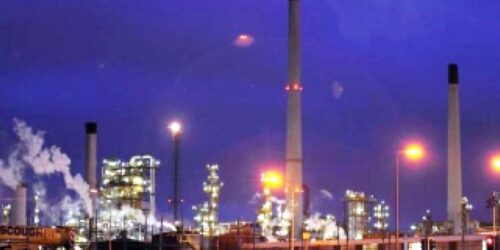The partial approval of refinery policy is followed by another controversy in the sector as the chairman of Expert Group on Petroleum has suggested to the government to shut down three refineries, namely Pakistan Refinery, National Refinery and Byco Petroleum.
The three refineries are producing jet fuel and kerosene oil to meet strategic requirements of the country. At present, Pakistan has five refineries and the other two are Parco and Attock Refinery.
The official is betting on the construction of new refineries pledged by Saudi Arabia and the United Arab Emirates (UAE). However, they exist only on papers and no physical progress has been made so far.
Earlier, Adviser to Prime Minister on Commerce Abdul Razak Dawood, Cabinet Committee on Energy (CCOE) Chairman Asad Umar and Minister of Maritime Affairs Ali Zaidi criticised the tariff relief for refineries proposed in the Refinery Policy 2021.
Oil industry officials say that the proposal from Expert Group on Petroleum Chairman Farooq Rehmatullah will only benefit the oil traders’ mafia that is working to shut down the three refineries.
The Expert Group on Petroleum had been formed by the Economic Advisory Council (EAC) – an independent body that gives economic advice to the government.
“Pakistan simply cannot depend on imported petroleum products,” they said and questioned the proposal of closing down the refineries, which were major strategic assets of Pakistan.
Rehmatullah, who is the former CEO of Shell Pakistan, has vast experience in the field of oil marketing but has no experience in crude refining. After retiring from Shell, he joined Hascol Petroleum as Chairman of the Board of Directors.
As member of the EAC, he also backed the proposal that Pakistan should import petroleum products from different countries including India. He expressed his point of view in writing to Prime Minister Imran Khan and also told it to members of EAC and CCOE.
When the oil refinery policy was made public in June 2020, Rehmatullah lobbied against it.
Following establishment of liquefied natural gas (LNG) terminals, Karachi ports have found it difficult to transport oil. The Ministry of Maritime Affairs is working on setting up two more LNG terminals, which will cause further congestion at ports.
Pakistan State Oil (PSO) has paid millions of dollars in demurrage charges due to the congestion at ports.
The proposed closure of three refineries will place more burden on the ports and increase the country’s oil import bill, industry players say. Refineries save millions of dollars in foreign exchange by refining and producing different petroleum products.
In addition, they employ a large workforce in all parts of the country. Some refineries have even shared plans to expand their facilities and have allocated millions of dollars for the upcoming projects.
When contacted, Farooq Rehmatullah acknowledged that he was opposed to tariff protection for the existing refineries in the new refinery policy.
He argued that Pakistan Refinery, National Refinery and Byco were making no efforts to expand their plants.
“They are just seeking protection in the new policy,” he said, adding that the government should focus on larger refineries that would be established in Pakistan by Saudi Arabia and the UAE.
He pointed out that several smaller refineries were shutting down all around the world.





